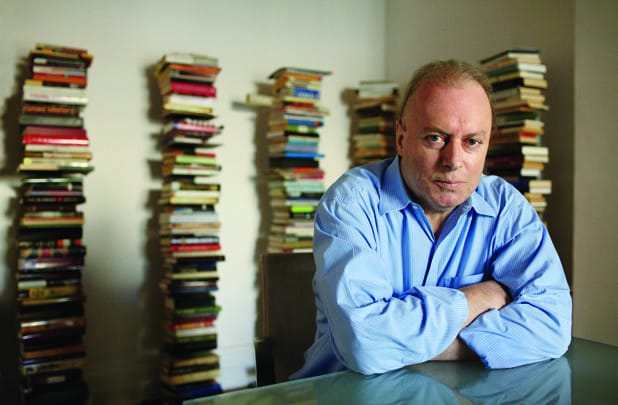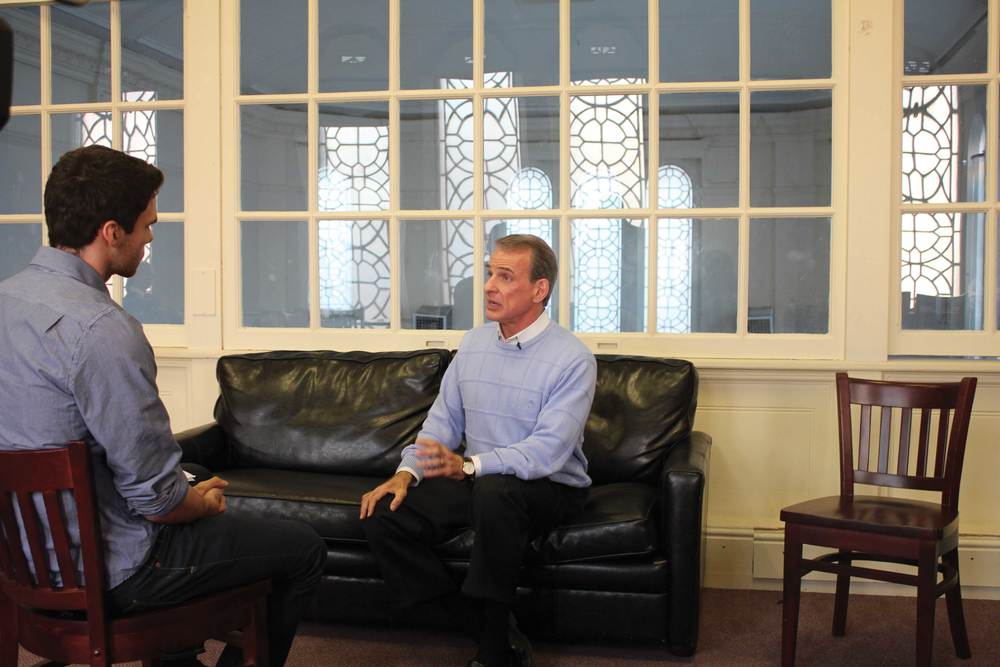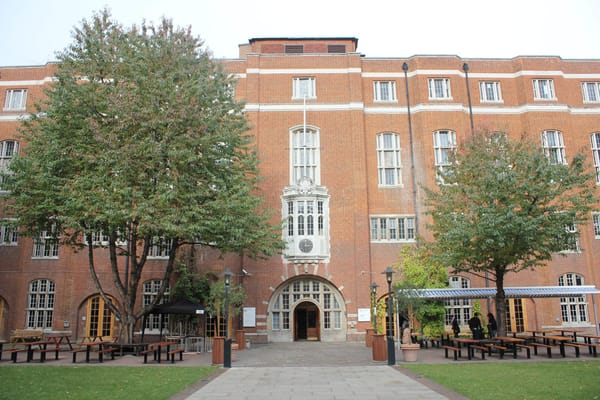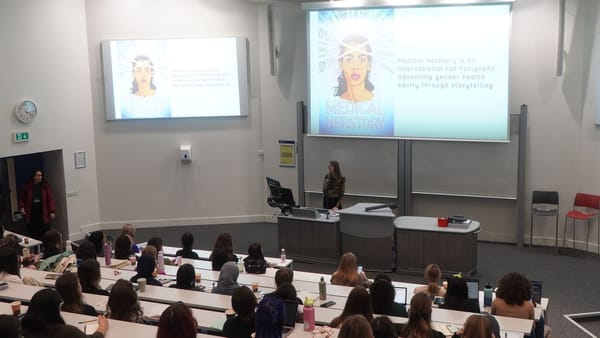Interview: William Lane Craig
Sam Horti talks to the renowned Christian philosopher about his work

Watch the interview in full below – with thanks to STOIC TV
Firstly, Dr Craig, thanks very much for coming along to speak to us, we appreciate you taking the time to enrich the Imperial College students.
Dr Craig: My pleasure.
I just want to get a little of your personal background and ask: when did you first become interested in Philosophy?
I think my interest in Philosophy developed during my University years, I took some courses in Christian Theology and then Philosophy, and courses in literature as well. That really sparked my interest in questions that were philosophical in nature: What is truth? How do we discover truth? What is the truth in the Christian world-view? It was during those upper years of university study.
Was religion always the focus of your philosophy?
Of my philosophy, yes, but it wasn’t always the focus of my life; I wasn’t raised in a Christian home or even in a church going family, but my interest in religious affairs preceded my interest in Philosophy. I’m a philosopher because I’m a Christian, my philosophy flows out of my Christian faith.
When did you decide that you wanted to make your philosophy, and your religion, the focus of your career?
Well, I think this emerged gradually in the course of my university and postgraduate studies. I saw that these deep philosophical questions needed to be addressed in order to commend the gospel to thinking men and women today. In an increasingly secular culture, people have questions about the truth of the Christian world-view, and to ignore or turn aside questions of that nature would be irresponsible. It seemed to me that it was a natural thing to do: to explore the philosophical foundations of and justification for my own Christian faith.
Moving on to your current UK tour, let me ask you: why did you decide to come to UK and deliver talks such as this one (at the Bethinking National Apologetics day conference)?
Well you have to understand that for a long time, I’ve been an Anglophile. I love this country; when my wife and I married, we honeymooned in London, and we always come back whenever we can. When I did my doctoral work in Philosophy I came to the university of Birmingham, so we lived and I studied here. Since then we’ve come back on sabbatical to do research, so when we got an invitation to do a university speaking tour in the UK we jumped at the chance.
With the UK being a more secular society than the US, do you notice a difference in the way that you’re taken in by the public here, and do you get a different reaction in the UK than you would in the US?
I don’t think that I see a difference personally, because the people that come to our meetings are very interested. We’ve been speaking to packed houses, and so I don’t see the indifferent, apathetic person who doesn’t care about these things. By the very nature of the case, the people that come to see my speak are interested even if they’re sceptical or agnostic or atheistic. There’s a kind of self selection that goes on and so I recognise, in that sense that we’re not seeing the broader British public, but those who do care about these issues.

In a recent lecture at Imperial College London you cited 7 pieces of rational evidence that would lead us to the conclusion that the Christian God exists. Why do you think that some people who are learned in the subject, including people you’ve debated such as Sam Harris and Christopher Hitchens, don’t accept these pieces of evidence as sound and correct?
With reference to the two examples you’ve named, with all due respect, I don’t think they do know a lot about the subject. I have debated both of these gentleman in public forums and at universities, and Christopher Hitchens’ lack of familiarity with the issues was astonishing. Similarly with Sam Harris, he was just impotent even to defend his view against criticism.
I think that so often, these folks are so deeply embedded in a secular world view, and interact so rarely with people with a different perspective, that they’re utterly unaware of the literature. They don’t read people like me, they don’t participate in conferences with people like me, they don’t invite people like me to share a platform with them as I do when I invite them. There really is a tremendous ignorance; many of these folk rejected the Christian faith as young people (11 or 12 years of age) and they’ve never studied it since.
Having said that, there certainly are many who are philosophically informed and have a different take on the issue, and I would say a difference of opinion is possible on these deep questions. I have no desire to insult the rationality of atheists or others who disagree with me. I respectfully disagree with them and I present my arguments and evidence and it’s up to people, with an open mind, to accept or reject them.
Your view that it is a rational conclusion to accept that God exists would lead me to the conclusion that there is no room for faith in the Christian belief system. Do you think that there is a need for faith?
I think it absolutely does leave room for faith. In the new testament the concept of faith is not a way of knowing something, it is a way of trusting in something, of committing to something. For example, several years ago I had corneal surgery on my eyes.
As you can imagine, before I let myself go under the knife, we carefully investigated who was the finest corneal surgeon in the US, and then based on that evidence, I trusted him to make the cut on my eyes. Similarly, when someone comes to the conclusion that God exists, then the decision of faith arises. Am I going to commit my life to this person and trust him? The evidence can actually bring you to the decision of faith.
In a hypothetical situation in which your rational pieces of evidence could be refuted to a level with which you were satisfied, and were able to recognise that they were refuted, would you still have your beliefs or would it be the case that it would become irrational for you to believe in God?
I would still have my belief, because my belief in God is not based on these arguments. These arguments are confirmatory of my belief in God. I think my faith in God is based on the inner witness of God’s spirit to my own heart. I have a personal relationship with Him, His spirit lives within me, and while there are good arguments and evidence to confirm that, my faith is not based upon them.
I think this is a wonderful thing because most people in the history of the human race have had neither the time, nor the education, nor the library resources to investigate the philosophical arguments for God’s existence or the historical evidence for the resurrection of Jesus, and so they would be condemned to unbelief if this were the only way of knowing God. But God, in his mercy, has provided an interior way of knowing that he exists which is open to all persons everywhere regardless of their education, their time or their resources. For those of us who have the luxury of leisure time, university education, and fantastic library resources, we have a double advocate.
In addition to this interior way we have these exterior arguments which support it. What’s also good about this is that I can hold these arguments lightly. If a refutation comes along, I don’t have to go to the wall to the defend these arguments, I can give them up easily. This helps me to be more, rather than less, objective about the validity and soundness of these arguments.
If you were faced with an atheist, and you were trying to convince him that God exists, do you think it would be more effective to address it from the rational standpoint, or do you think trying to convince him from this internal standpoint that you mentioned would be more effective?
I don’t think it has to be either/or. I think it can be both/and. I would share with my atheist friend these arguments and pieces of evidence that I find compelling but I would also remind him that the search for God is not some sort of disinterested academic discussion like adding another piece of furniture to your view of the universe. This is a deeply existential and personal quest that needs to be pursued in humility and with openness of heart and openness to God. I would encourage the atheist to pray, for example, that if God is there, he would reveal himself. I see it as a both/and.
You’ve debated some of the most well known atheists in the world, the likes of Dan Dennet, A.C. Grayling, as well as Sam Harris and Christopher Hitchens as I’ve mentioned before. When you take part in these debates, what do you intend to get out of them? Is it your aim to convert atheists that are watching, or is your aim to simply get your views across?
The purpose of these events is to illustrate to the university communities, in which these debates are typically held, that the Christian faith is a viable option for thinking men and women today. So often university students have been told that it is irrational to be a Christian, that Christianity is for old ladies and little children but no thinking adult can be an intelligent believer. That is so patently false and these debates help to illustrate that.
I could come on to a campus, as I did at Imperial, and give a lecture myself, unchallenged, but I think it’s far more effective and credible when an atheist shares the platform with me, is given equal time and even the last word; and yet students still see that the Christian worldview comes out intellectually head and shoulders above its competitors. I welcome the open dialogue with atheists about this.
In contrast to a university event, if you are speaking at a predominantly Christian event, is your aim to affirm the faith of those present or do you have another motive?
It isn’t just to affirm the faith of those persons, although it certainly is in part. Contrary to what atheists say, Christians are actually pretty open minded and many struggle with real doubts. They hear the objections from the new atheists for example, and they trouble them and think about them. Christians are not the brain dead people that atheists sometimes portray. Hearing that there are good reasons to believe as well as good answers to these objections can affirm their faith.
But there is a further reasons why I will sometimes speak to Christian audiences, and this is to equip them. If Christians can be trained to give good reasons for what we believe and good answers to unbelievers questions, they will be more effective in sharing with their friends and family members the good news of the gospel. And so I’m interested in equipping Christians to be good witnesses to the truth of the Christian faith
As well as doing debates you do a lot of writing. Firstly, what do you enjoy more? And secondly, what do you think is a more convincing form of argument?
This is a really good question; I enjoy them both so much. When I’m at home in my study writing I often think: “Gosh, I wish I could be out on the road speaking or debating.” When I’m travelling and debating I often think: “I wish I could be in my study, writing in peace and quiet.” They’re both really wonderful opportunities and I enjoy both and do both equally.
In terms of which is more effective, I once would’ve said, and I’m still inclined to think, that the writing and research is more effective at reaching people because my circumference of personal contacts is so limited compared to the written work; my books get into university libraries, where they will be for generations. My goal as a writer is to leave a legacy that outlives myself.
However, since the development of the internet and YouTube, it turns out that those who see me live, such as at Imperial College, turns out to be a tiny minority. There will be tens of thousands of people who will watch that YouTube video. I have never put a video on YouTube, but other people pirate them and put them up, and I recently saw a Google statistic that these Dr Craig video sites have had over 4 million views.
That is far more than I’ve sold in terms of books; so it may well be that the public speaking will actually reach more people because it too is archived in this way, and reaches far more people than I do in the actual live audience.

Just two more questions before we finish; the first is about Richard Dawkins. There’s been a lot of back and forth between yourself and Professor Dawkins, and I was just wondering if you’ve read his recent article in the Guardian?
I have read it but I just want to say that there hasn’t been a back and forth between me and Richard Dawkins; I have not responded to any of this. All of this is generated by other people who invite him and me to be in these debates, who have started this bus campaign in Oxford, who have made these YouTube videos. I don’t have anything to do with that. I have preferred to stay out of this and watch as an amused bystander. So yes I have read the article, but I’m not going to respond.
Lastly, I just want to get your thoughts on the future of the atheist-theist debate. What do you think the questions we’ll be asking in, say, 100 years time will be? Do you think we will be asking the same questions that we’re asking now?
I do, these are perennial questions; I think the problem of suffering and evil, and the hidden nature of God will always be the primary reason for doubt about God’s existence. I think modern science will continue to discover facts about nature and the world we live in that point beyond itself to a transcendent creator and designer of the universe.
The moral argument will always be with us because we will always be asking: what is the foundation for moral values and duties? Do they even exist objectively or is everything relative? These I think are perennial questions which will be with us in a hundred years time.
Once again, thank you very much for agreeing to speak to us, we appreciate you taking the time, and good luck on the rest of your UK tour.
Certainly, thank you.
Interviewer's Commentary
Dr Craig, as I expected, was an extremely charismatic man, and it is easy to see why so many are taken with his ideas. This charisma, along with his general intelligence, makes him an extremely skilled debater. As with many skilled debaters, however, he often (in my opinion) seems to rely on style rather than substance to win debates. His capacity as an orator introduces extraneous information which seems to hide some of the frailties of his arguments. There are countless responses to Dr Craig’s main arguments to be found on the internet (Google is your friend), so, for now, I am only going to critique the main points that Dr Craig presents during this particular interview.
I can’t resist a comment on Dr Craig’s views on both Christopher Hitchens and Sam Harris. All I can say is that if these two men haven’t studied religious philosophy since the age of 11 or 12, then, judging by the countless books they have written on the subject, they must have been the two smartest children that have ever lived. I’m sure Dr Craig knows that these two men have taken part in countless debates and discussion with religious apologists, and have spent a great deal of their life dedicated to the study of the subject, and so I find his comments at best, curious, and at worst, facetious and unnecessarily spiteful.
I would now like to look at Dr Craig’s views on the distinction between faith and evidence. “Religious faith” always causes huge problems in debates such as the ones in which Dr Craig participates, because it is such an ill-defined term. Dr Craig, in this interview, clearly advocates a system by which faith is gained only when belief is achieved. Although not all religious people will agree with this, as “faith” is seen by some as the only justification needed for belief, it does seem to make sense to me. I think if every religious person adopted this same system, then it would make rational debate and argument much more fruitful.
Dr Craig’s view that only evidence should light the path to belief means that, presumably, if his evidence were to be refuted, then his belief in God would be lost. But it’s not quite that simple. He has, as he says a “double advocate”. He has the external evidence, which he concentrates on in debates, and “internal” evidence which is, in his own words, the “inner witness of God’s spirit to my own heart”. Lets see if we can’t examine both these sets of evidence in turn and find out if they are sound.
As I said in my introduction, I’m not here to offer refutations to Dr Craig’s pieces of “external” evidence, both because it would need a lot more words than I have at my disposal, and because there are countless refutations available on the internet if you are interested. However, it seems to me that these pieces of evidence are made completely redundant by the fact that they are simply afterthoughts. It is the “internal” evidence that has led Dr Craig to believe, not the arguments that he so often professes (as he admits in this interview), and so he therefore can hold these arguments “lightly”. They therefore seem rather pointless, as they didn’t even convince him in the first place; he has essentially started from a base of belief and then gone searching for evidence that may back his viewpoint up, which is undoubtedly going to cloud his judgement. It is like someone travelling up to Scotland already believing in the Loch Ness monster, and then getting excited after days of searching when they finally see the tip of a rock poking out of the water.
Although the internal advocate that Dr Craig bases his beliefs upon is beyond examination, it does certainly bring up what I think is a major problem with religious belief, in that it is only made possible by the unfaltering solipsism of man. What I mean by this is that we erroneously tend to rely on our own feelings while negating the feelings of others without any real justification other than that these feelings belong to us. If you asked a hundred different religious people about what they feel about God, you would get one hundred different answers. And yet every single one of them will value their own “internal” evidence above that of the other 99.
What will Dr Craig say, for example, about a Muslim who knows, through his own internal advocate, that Allah is the one true God? Why is this person’s internal evidence not equally as compelling to Dr Craig as his own? Furthermore, what would Dr Craig say about the “internal evidence” of someone who strongly felt that they had been abducted by aliens? Or had psychic powers? I have no doubt that Dr Craig would cast these aside as ridiculous cases, and yet he has complete confidence in his internal feelings. This is, in my opinion, one of the great failings with religious belief. Too much emphasis is placed on what we “feel” rather than what the evidence points to.
I could speak at a lot greater length about Dr Craig, but unfortunately I have to stop, a little abruptly, here. I would encourage those of you who are interested to watch one of the many youtube videos that Dr Craig mentions in the interview to see him in action and hear some rebuttals to his main arguments. Let me thank the organisers of the interview too for giving me the opportunity to conduct this interview, and, of course, Dr Craig for giving up his time.






